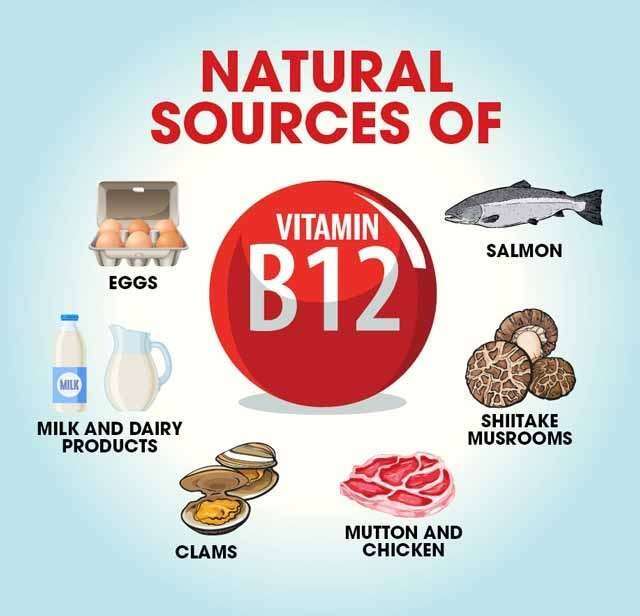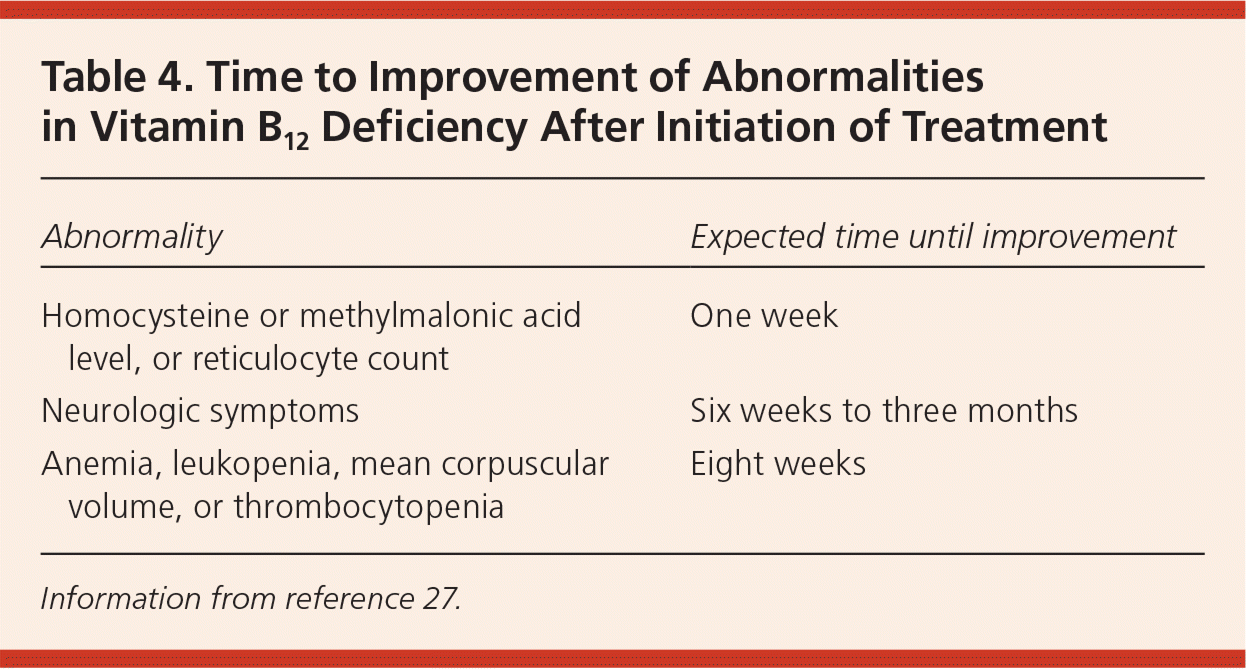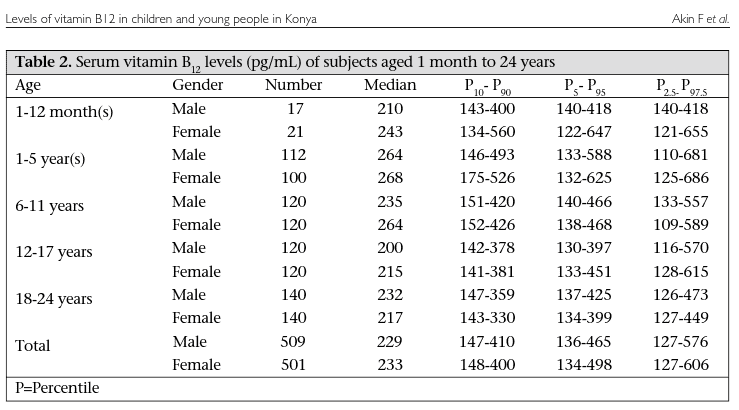Signs of Vitamin B12 Deficiency in Middle-Aged Adults

Signs of Vitamin B12 Deficiency in Middle-Aged Adults
As we age, our bodies undergo various changes that can affect our health and well-being. One common issue that often goes unnoticed is vitamin B12 deficiency. This condition can be particularly prevalent among middle-aged adults, affecting not just their physical health but also their mental and emotional well-being. In this article, we will explore the signs of vitamin B12 deficiency, its causes, and practical steps you can take to prevent or manage it.
:max_bytes(150000):strip_icc()/vitamin-b12-deficiency-2488570_final-f6046c0de6114c14a488433ca2b19142.jpg)
Understanding Vitamin B12
Vitamin B12, also known as cobalamin, is a crucial nutrient that plays a vital role in the production of red blood cells, nerve function, and DNA synthesis. It is found primarily in animal products such as meat, fish, poultry, eggs, and dairy products. Vegans and vegetarians often require supplements to meet their B12 needs.
:max_bytes(150000):strip_icc()/vitamin-b12-deficiency-2488570_final-f6046c0de6114c14a488433ca2b19142.jpg)
Signs and Symptoms of Vitamin B12 Deficiency
Vitamin B12 deficiency can manifest in a variety of ways, often mimicking symptoms of other conditions. Here are some common signs to look out for:
-
Fatigue and Weakness: Feeling tired or weak is one of the earliest symptoms of vitamin B12 deficiency. This is due to the lack of red blood cells, which are essential for transporting oxygen throughout the body .1 .2.
-
Shortness of Breath and Rapid Heartbeat: These symptoms occur because the body is not producing enough red blood cells, leading to reduced oxygen delivery to tissues .1 .8.
-
Neurological Symptoms: Numbness or tingling in the hands and feet, difficulty walking, and balance problems are common neurological signs. These symptoms can progress to more severe conditions like dementia if left untreated .1 .13.
-
Mood Changes: Depression, anxiety, and irritability are psychological symptoms that can arise from a B12 deficiency .1 .9.
-
Digestive Issues: Loss of appetite, diarrhea, and constipation are frequent gastrointestinal symptoms .1 .8.
-
Skin and Hair Changes: Pale skin, yellowish skin tone, and hair loss are also associated with B12 deficiency .9.
:max_bytes(150000):strip_icc()/vitamin-b12-and-multiple-sclerosis-2440634_FINAL-bb9eab4db013493f85f9b708c5c1a3c4.png)
Causes of Vitamin B12 Deficiency
Understanding why vitamin B12 deficiency occurs is crucial for prevention and management. Here are some common causes:
-
Dietary Factors: Vegans and vegetarians are at higher risk due to the absence of animal products in their diets. Even if you consume animal products, a diet lacking variety can lead to inadequate intake .10 .15.
-
Absorption Issues: Conditions like pernicious anemia, celiac disease, and Crohn’s disease can impair vitamin B12 absorption .10 .15.
-
Medications: Certain medications, such as proton pump inhibitors and metformin, can interfere with B12 absorption .10.
-
Age-Related Decline: As people age, their ability to absorb vitamin B12 from food decreases due to reduced stomach acid production .14.
:max_bytes(150000):strip_icc()/vitamin-b12-and-multiple-sclerosis-2440634_FINAL-bb9eab4db013493f85f9b708c5c1a3c4.png)
Prevention and Management
Preventing or managing vitamin B12 deficiency involves a combination of dietary changes, supplements, and lifestyle adjustments.

Dietary Changes
Incorporate vitamin B12-rich foods into your diet:
-
Animal Products: Beef, pork, lamb, fish (especially clams and mackerel), poultry, eggs, and dairy products are excellent sources .4 .15.
-
Fortified Foods: Many cereals and plant-based milks are fortified with vitamin B12 .4.

Supplements
If dietary changes are insufficient or if you have absorption issues, consider supplements:
-
Oral Supplements: Available in various forms, including tablets and sublingual sprays. High doses can be absorbed even without intrinsic factor .15.
-
Injections: For severe deficiencies or those with neurological symptoms, injections may be prescribed .15.

Lifestyle Adjustments
-
Regular Check-Ups: If you’re over 40, consider regular blood tests to monitor your vitamin B12 levels .14.
-
Healthy Lifestyle: Maintain a balanced diet and avoid excessive alcohol consumption, which can impair B12 absorption .10.

Conclusion
Vitamin B12 deficiency is a common yet often overlooked condition that can significantly impact the health and well-being of middle-aged adults. By recognizing the signs and taking proactive steps to prevent or manage the deficiency, you can maintain optimal health and reduce the risk of long-term complications. Remember, early detection and treatment are key to reversing symptoms and preventing irreversible damage.
:max_bytes(150000):strip_icc()/vitamin-b12-deficiency-2488570_final-f6046c0de6114c14a488433ca2b19142.jpg)
Additional Tips for Writing Your Article
-
Engage Your Audience: Use relatable examples and anecdotes to illustrate how vitamin B12 deficiency can affect daily life.
-
Simplify Complex Concepts: Explain medical terms in simple language and use analogies to make the content more accessible.
-
Provide Actionable Advice: Offer practical tips on diet, supplements, and lifestyle changes that readers can implement.
-
Use Visuals: Include images or infographics to highlight key points and make the article more engaging.
-
Link to Resources: Provide links to reputable health







